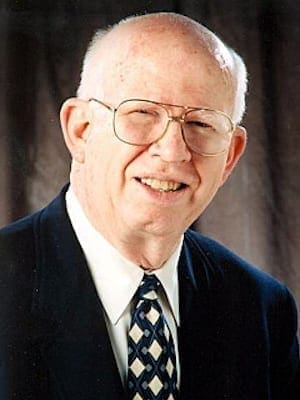I have a renewed interest in the concept of the priesthood of the believer as embodied by lay leadership in the local church.
This unexpected perspective emerged from a focus on Baptist beliefs and distinctives in the Sunday school class I attended for Baptist History and Heritage Month last October.
Unless those of us in Baptist churches – and other traditions where the laity are important – step up to the plate, the laity is in great danger of forfeiting its partnership with the professional clergy.
This is crystal clear in a resolution that was adopted by the Southern Baptist Convention in San Antonio in 1988, “Resolution on The Priesthood of The Believer,” which states that “elders, or pastors, are called of God to lead the local church.”
The laity have been equal partners with the clergy in Baptist congregations since our founding in 1608/9. In fact, Thomas Helwys, a layman, founded the first Baptist church on English soil in 1611.
With the arrival of the megachurch and the CEO-pastor model, the influence of the laity has been in steady decline. This has happened as two streams emerged.
The first is the gradual voluntary relinquishing of responsibility by the laity. I count myself in this category.
The second stream is the eager accepting of more responsibility by the professional clergy. This pattern has accelerated among Baptists in the southern U.S. since the passage of the 1988 resolution.
Over this same period, we have seen the rise of clergy abuses.
While there are exceptions, the general trend has been for the power of the professional clergy to continue to increase, while the size of laity-led boards and committees has declined in relation to congregational size.
This gives more and more control to smaller and smaller groups. In many cases, a small group of elders, along with the pastor, exercise control over the affairs of the congregation.
Committees have become less and less active until many of them have disappeared.
As members have become less involved in the affairs of the congregation, membership and attendance have also declined.
The clergy make vital decisions once made by church members. There are fewer opportunities to develop and nourish new leadership.
How will young adults – both women and men – in our congregations develop the skills necessary to develop into effective leaders if they aren’t given the chance? Where are the training opportunities?
I contrast this situation with the days when I was a young Christian. My church could not wait to move its young people into places of leadership development. Their encouragement and support undergirded everything I did.
My undergraduate years were filled with wonderful opportunities to develop my skills in both urban and rural churches as a volunteer.
Years later, when I arrived in Baton Rouge, Louisiana, as a graduate student and a stranger in my newly found church home, I was quickly tapped to fill a place of service.
When I arrived in Charleston, South Carolina, in my local church, I joined the most active group of young professionals I had ever encountered.
The church simply hummed with their involvement. In no time, my wife and I were put to work.
Our church has a long history of women in leadership positions. Due to hard times after the Civil War and the shift in the population, the trustees boarded up the church and were ready to assign it to history or turn it into a museum.
However, a small group of women pried the boards from the windows, climbed through and continued services.
From my youngest days, my life has been blessed by men and women of the clergy from a host of denominations. They are my friends and mentors.
I honor and respect them, listen to and socialize with them and often question them.
I would describe them as servant leaders because they recognize the essential role of the laity as partners in the pursuit of building God’s kingdom on earth.
As one of my former ministers said to a group of us while visiting me at college, “Everyone is either a missionary or a mission field.”
At the time, I thought that he was playing for laughs; however, over time I have come to appreciate the wisdom of his statement. There is a vital role for every Christian.
The role of the clergy is essential; however, we make a grave mistake when we enhance that role to the extent that the importance of the work of the laity is compromised.
A member of First Baptist Church of Charleston, South Carolina, he was the author of “Our Father: Discovering Family.” Mitch’s writings can be found at MitchCarnell.com.


